
CORONAVIRUS DISEASE COVID 19 NEWS AND RESEARCH
Latest Coronavirus Disease COVID 19 News and Research
Shingles vaccination rate soars but leaves many behind
Worried about the high cost of the copayment for the shingles vaccine, Jacky Felder, a Medicare beneficiary, opted against getting immunized last year.
Ozone gas can provide a safe means to disinfect personal protective equipment
A new study shows that ozone gas, a highly reactive chemical composed of three oxygen atoms, could provide a safe means for disinfecting certain types of personal protective equipment that are in high demand for shielding health care personnel from Covid-19.
Research shows how SARS-CoV-2 alters translation
Now, a new study published on the preprint server bioRxiv in July 2020 shows that the 5’ end of the RNA molecule is capable of inhibiting the binding of mRNA to the ribosomal 40S subunit, thus preventing translation.
Study assesses the ability of a variety of mask materials
It's intuitive and scientifically shown that wearing a face covering can help reduce the spread of the novel coronavirus that causes COVID-19. But not all masks are created equal, according to new University of Arizona-led research.
Researchers map RNA structure throughout SARS-CoV-2 genome
The severe acute respiratory syndrome coronavirus 2 (SARS-CoV-2) which is currently at the heart of a pandemic that has cost the world more than 550,000 lives, 12 million infections, and uncounted years of productivity, is an RNA virus with the largest genome among all such viruses. This 30 kb size virus has caused many difficulties for scientists in search of a vaccine.
Scientists and community organizations team up to track and assess COVID-19 response
A team from the University of Kansas Center for Community Health and Development has partnered with Lawrence-Douglas County Public Health and other community organizations to track and assess the countywide public health response to the COVID-19 pandemic.
Tracing adaptation to ACE2 use in sarbecoviruses
A detailed study published on the preprint server bioRxiv in July 2020 argues that recombination accounts for the appearance of the ability of both SARS-CoV and SARS-CoV-2 to use the human angiotensin-converting enzyme (hACE) 2 as the binding receptor mediating viral infection of human cells.
Research sheds doubt on the Pangolin link to SARS-CoV-2
A startling new study by researchers at the Broad Institute of MIT and the University of British Columbia and published on the preprint server bioRxiv* in July 2020 casts doubt on the hypothesis that the current severe acute respiratory syndrome coronavirus 2 (SARS-CoV-2) was transmitted from pangolins acting as the intermediate host. Instead, the authors suggest, the pangolins themselves were incidentally infected from other animals in captivity or from humans.
Columbia behavioral scientist uses data science to confront healthcare inequality
Kai Ruggeri's research has one overriding objective: to improve the well-being of populations by confronting inequality.
Lung physiology and immune function could spare children from severe COVID-19
Differences in lung physiology and immune function in children could be why they are more often spared from severe illness associated with COVID-19 than adults, according to pediatric and adult physicians at The University of Texas Health Science Center at Houston and Baylor College of Medicine, who teamed up to investigate the disparity.
$50 million NIST funding to support U.S. manufacturers in their response to COVID-19
The U.S. Department of Commerce's National Institute of Standards and Technology (NIST) has awarded a total of $50 million in emergency funding to support U.S. manufacturers in their response to the COVID-19 pandemic.
UofSC researchers win NIH grant to develop data-driven system to track COVID-19
University of South Carolina researchers from its Big Data Health Science Center initiative have received $1.25 million in grant funding from the NIH National Institute of Allergy and Infectious Diseases (NIAID) to develop a data-driven system to track COVID-19 in South Carolina.
A biomaterial vaccine for SARS-CoV-2 - quick and scalable
A recent 'tour-de-force' research endeavor, led by scientists from Harvard University, explored the propensity of a biomaterial vaccine based on mesoporous silica rods to spawn highly protective humoral responses against relevant antigens of the severe acute respiratory syndrome coronavirus 2 (SARS-CoV-2).
Study links fermented vegetable consumption to low COVID-19 mortality
An intriguing new study by researchers in Europe suggests that coronavirus disease 2019 (COVID-19) mortality rates are likely to be lower in countries where diets are rich in fermented vegetables.
Tuberculosis vaccine may play a significant role in mitigating COVID-19 mortality rates
One of the emerging questions about the coronavirus that scientists are working to understand is why developing countries are showing markedly lower rates of mortality in COVID-19 cases than expected.
Community coronavirus testing in England shows lockdown had "intended effect"
UK researchers say the proportion of people testing positive for severe acute respiratory syndrome coronavirus 2 (SARS-CoV-2) significantly declined in England between 26 April and 28 June 2020.
Small molecule drugs binding Mac1 domain of SARS-CoV-2
Now, an intriguing new study out of the University of Wisconsin-Milwaukee reveals that numerous small molecule drugs like the proton pump inhibitors omeprazole and rabeprazole bind the important Mac1 domain on the severe acute respiratory syndrome coronavirus 2 (SARS-CoV-2) virus.
Researchers isolate potent SARS-CoV-2 neutralizing antibodies
An important line of defense in the fight against the new coronavirus SARS-CoV-2 is the formation of neutralizing antibodies.
Study: Cellular therapy can improve critical cases of COVID-19
A cellular therapy tested on 13 intubated patients with mechanical ventilation has shown to be efficient for the clinical improvement of critical cases of COVID-19.
COVID cuts a lethal path through San Quentin’s death row
The old men live in cramped spaces and breathe the same ventilated air. Many are frail, laboring with heart disease, liver and prostate cancer, tuberculosis, dementia. And now, with the coronavirus advancing through their ranks, they are falling one after the next.

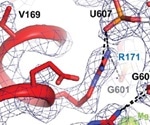

_0037f34f66c749869cf54f1d0ea3a2f0-150x125.jpg)
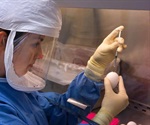
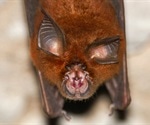
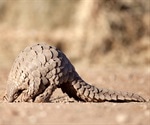

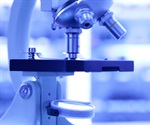

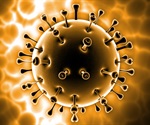
_d5874dfdd752458a86012c1e3d3aa233-150x125.jpg)

_Chronic_granulomatous_inflammation_-_Komsan_Loonprom_fea37e8c42be4ab7bdc8c06c21bcc289-150x125.jpg)

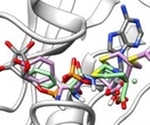
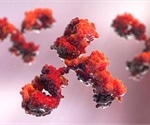
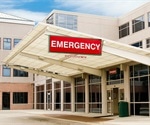

































No hay comentarios:
Publicar un comentario